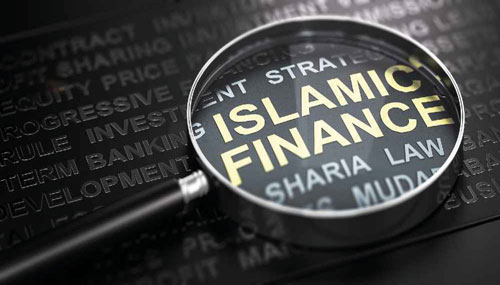A recent policy push by the Bangladesh government to develop Islamic finance could, if sustained, spur the industry’s growth, said American credit rating agency Fitch Ratings.
“We believe the Islamic finance sector has the potential for significant growth over the medium term, supported by strong bottom-up public demand for Islamic products and the country’s robust economic prospects,” they mentioned in a report published recently.
But long-standing constraints have posed challenges to Bangladesh’s Islamic finance sector, according to Fitch.
These include the lack of comprehensive regulations governing the industry and weak enforcement of financial regulations in general, a dearth of Islamic liquidity-management and investment products, limited incentives from regulators for sukuk issuers, a lack of standardisation in the country’s Islamic finance sector, limited skilled human capital, and inadequate use of fintech solutions by stakeholders.
“However, Bangladeshi authorities have approved a number of conventional banks to convert into Islamic banks in the last few years, stimulating the sector’s expansion,” it further said.
Conversions may have been fuelled partly by laxer prudential requirements for Islamic banks relative to their conventional counterparts, though we believe other factors have also played a role, such as customer demand for Sharia-compliant services.
Islamic banks – by total assets – constitute over 95% of the country’s Islamic finance industry, which Fitch Ratings estimates reached over $48.1 billion by the end of the second quarter (April-June) of 2021.
Within Bangladesh’s banking sector, Islamic banks accounted for around 27% of deposits, 28% of loans and advances, and 38% of remittance handling.
Fitch Ratings also found that the market share of Islamic bank deposits has risen in Bangladesh over the last couple of years.
“We expect that growth in Islamic banking should be supported by the opening of more Islamic windows and branches among conventional banks, and raising awareness of sharia-compliant financial products,” the report reads, mentioning that Bangladesh’s strong economic growth prospects should help to drive robust increases in Islamic banking assets over the medium term.v Demographic factors also present the potential for growth, such as Bangladesh having a large unbanked population of about 50% as of 2017, the report adds.
Nonetheless, Fitch expects the country’s overall banking-sector loan growth will face constraints in the near term associated with high non-performing loan levels and thin capitalisation.
It is still to be seen whether the domestic market share of Islamic banks will continue to grow at the rates seen in recent years.
According to the Islamic Financial Services Board, Bangladesh’s share of global Islamic banking assets, at 2.3% at the end of the third quarter of 2020, was already higher than that of Indonesia (2.1%), Pakistan (1.3%) and Oman (0.7%),
Its share also exceeds that of Indonesia even though Bangladesh’s total banking system assets are around one-third in size.
The Islamic banking sector’s relatively high growth is similar to that seen in Jordan, Pakistan, and Oman where substantial demand has helped Islamic banks expand to a double-digit market share.
Meanwhile, outstanding Sukuk issuance and total takaful (Islamic insurance) contributions account for the rest of the Islamic finance sector in Bangladesh. The local Sukuk market is in its infancy, with an outstanding volume of about $0.9 billion and a global Sukuk market share of 1.7% at the end of 2020.
This partly reflects the still-developing nature of Bangladesh’s debt capital market and the underdeveloped regulatory framework that supports Sukuk issuance, according to the report. The government issued its first Sukuk in 2020, raising Tk8,000 crore ($935 million).
Fitch Ratings expect further sovereign Sukuk issuance in the next few years to catalyse the market’s development.—Dhaka Tribune










